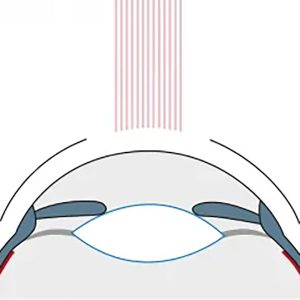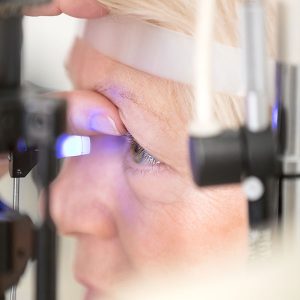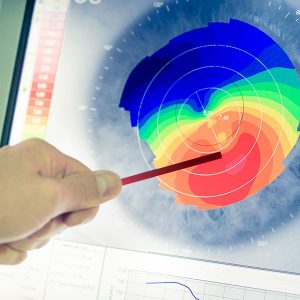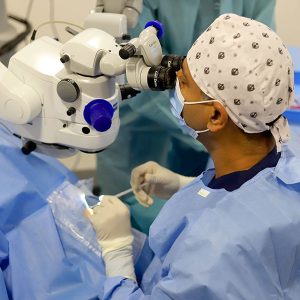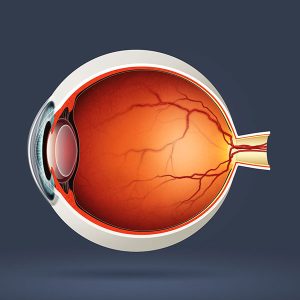Posterior capsulotomy is a laser procedure you might need sometime after cataract surgery. It helps you see clearly if your vision becomes cloudy again.
When you have cataract surgery, your surgeon removes your eye's cloudy natural lens. They replace it with a clear, artificial lens called the intraocular lens (IOL). The IOL is held in place in the eye’s natural lens capsule. Weeks, months or years later, this capsule can become cloudy or wrinkled, causing blurry vision. This condition is called a posterior capsule opacification (PCO) and may happen in around 20 % of people undergoing cataract or lens replacement operation. With posterior capsulotomy, a laser is used to make an opening in the cloudy capsule. This allows light to pass through again for clear vision.
What Happens During Posterior Capsulotomy?
The treatment is done in the clinic as an outpatient procedure and takes about 5 minutes to perform. Here is what will happen:
- In the eye to be treated the pupils will be dilated with eye drops which may take 10 -15 minutes
- Prior to the laser treatment a numbing eye drop will be placed.
- Your ophthalmologist will point a special laser at the back of the lens capsule and make a small opening.
- After the procedure, usually you can do all your normal daily activities. Your ophthalmologist will tell you if there are things you should not do right after surgery.
- You may need to use eye-drop medicine for one week after the surgery. Your ophthalmologist will let you know if this is necessary.
- If you have no other eye problems affecting your vision, your sight should improve in about 24 hours.
What Are the Risks of laser treatment for posterior capsulotomy?
As with any procedure, there are possible risks and complications with posterior capsulotomy. Here are some of them:
- You may have a detached retina (where the tissue lifts from the back of your eye). You may see what looks like a gray curtain moving across your field of vision. You might also see a lot of floaters. You should call your ophthalmologist immediately if this happens to your vision.
- The pressure in your eye may increase.
- The IOL might move through the posterior capsule opening.
- You may have swelling in your eye, and you may need steroid eye drops.
Your Personalised Procedure
To determine which procedure is right for you, a comprehensive assessment is conducted utilizing state-of-the-art technology. Based on the thorough diagnostic assessment, your surgeon will tailor a treatment plan to match the right procedure for your unique vision needs.



